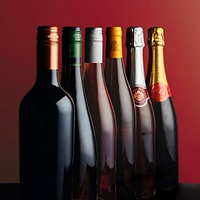Beef cattle

All our beef is
from BRITISH farms
There’s more room for the cattle, and we work exclusively with farmers who share our animal welfare values.
Because we buy the whole animal, farmers have more financial security than on the open market, so they can invest in sustainable farming methods and helping local wildlife.
It's considerations like this that help us win awards for our farming. Look out for our animal welfare marque on our own-label meat and fish.


Look out for the NATIVE BREED label
You’ll see it on some of our prepacked beef, and it means that it’s from breeds native to Britain, including Aberdeen Angus, Highland and Hereford, as well as rarer traditional breeds such as Welsh Black, Red Ruby, South Devon and Belted Galloways. Watch our video to see how cattle farmer Oli rears his herd of Highland cows in the Cumbrian hills.
Farmer Oli rears his herd of Highland cows in the Cumbrian hills
Native breeds of cattle take longer to mature than other breeds, which means they develop a rich marbling of fat, resulting in meat that’s succulent, tender and full of flavour.

Hereford
Dating back to the 18th century, the Hereford is instantly recognisable with its red coat and white face. Its beef has superb marbling, which produces meltingly juicy steaks.

South Devon
One of the larger British breeds, these cattle can often be seen grazing on the lush pastures of Somerset, Devon and Cornwall. Their lean, well-grained beef has good marbling.
Belted Galloway
With its double-thick coat, this Scottish breed has adapted well to moorland life. Slow to mature, their meat has a complex flavour and texture, and is naturally lean.

Red Ruby
Named for its deep red-brown colour, this West Country breed lives on the sandy hills of Devon. It produces well-marbled beef that’s prized for its tenderness and rich flavour.


Aberdeen Angus
By far the best-known and most popular native breed, it’s renowned for its ability to thrive in the UK’s often inclement weather. Its beef is tender, with a decent marbling of fat.

Welsh Black
Known as ‘the black gold from the Welsh hills’ – on account of having once been used as currency – they’ve existed in Wales since pre-Roman times. They’re adept at converting poor-quality grass into premium, flavourful beef.

Hereford
Dating back to the 18th century, the Hereford is instantly recognisable with its red coat and white face. Its beef has superb marbling, which produces meltingly juicy steaks.
South Devon
One of the larger British breeds, these cattle can often be seen grazing on the lush pastures of Somerset, Devon and Cornwall. Their lean, well-grained beef has good marbling.


Belted Galloway
With its double-thick coat, this Scottish breed has adapted well to moorland life. Slow to mature, their meat has a complex flavour and texture, and is naturally lean.
Red Ruby
Named for its deep red-brown colour, this West Country breed lives on the sandy hills of Devon. It produces well-marbled beef that’s prized for its tenderness and rich flavour.


Aberdeen Angus
By far the best-known and most popular native breed, it’s renowned for its ability to thrive in the UK’s often inclement weather. Its beef is tender, with a decent marbling of fat.
Welsh Black
Known as ‘the black gold from the Welsh hills’ – on account of having once been used as currency – they’ve existed in Wales since pre-Roman times. They’re adept at converting poor-quality grass into premium, flavourful beef.


Hereford
Dating back to the 18th century, the Hereford is instantly recognisable with its red coat and white face. Its beef has superb marbling, which produces meltingly juicy steaks.

South Devon
One of the larger British breeds, these cattle can often be seen grazing on the lush pastures of Somerset, Devon and Cornwall. Their lean, well-grained beef has good marbling.

Belted Galloway
With its double-thick coat, this Scottish breed has adapted well to moorland life. Slow to mature, their meat has a complex flavour and texture, and is naturally lean.

Red Ruby
Named for its deep red-brown colour, this West Country breed lives on the sandy hills of Devon. It produces well-marbled beef that’s prized for its tenderness and rich flavour.

Aberdeen Angus
By far the best-known and most popular native breed, it’s renowned for its ability to thrive in the UK’s often inclement weather. Its beef is tender, with a decent marbling of fat.

Welsh Black
Known as ‘the black gold from the Welsh hills’ – on account of having once been used as currency – they’ve existed in Wales since pre-Roman times. They’re adept at converting poor-quality grass into premium, flavourful beef.







